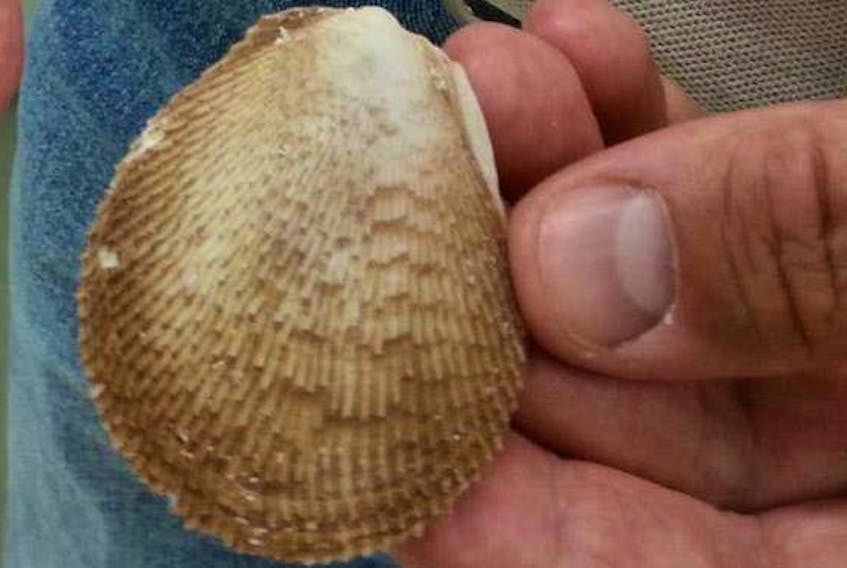The Mi’kmaq community in Nova Scotia hopes to break into the Arctic surf clam fishery in a big way.
“It will have long-term, lasting effects. It will change the economic landscape for us, our 13 communities in Nova Scotia,” Terrance Paul of the Assembly of Nova Scotia Mi’kmaq Chiefs said of all the First Nations in the province working together to submit an application for a lucrative Arctic surf clam licence.
“It’s very, very good news and we’re very hopeful that the minister will agree that our proposal is the one to go with.”
Dominic LeBlanc, the federal Fisheries and Oceans minister, announced in September that 25 per cent of the existing quota would go to a new entity after written proposals are received and reviewed this month.
Clearwater Seafoods of Halifax had held licences for the entire 38,000-tonnes of surf clam harvested annually offshore between Nova Scotia and Newfoundland and Labrador. The bright red clam meat is exported to Asia, where it is used in sushi. Second-quarter sales of surf clams in 2017 were $25 million.
The Nova Scotia Mi’kmaq have partnered with Clearwater on the application but the licence would remain 100 per cent Mi’kmaq owned, Paul said.
“I think it is entirely up to the minister but I believe it would be before the new year, though,” Paul said of the timing of the federal decison on the application. The federal government has stipulated that the new licence holder be majority Canadian-owned and be an Indigenous entity based in Atlantic Canada or Quebec. The licence will be for 2018.
One other application has been submitted collectively by three Indigenous groups — the Miawpukek First Nation, the Innu Nation and the Qalipu First Nation — from Newfoundland and Labrador.
New opportunities
Paul said Clearwater would provide training and job opportunities for members of the 13 First Nations in Nova Scotia.
“It’s a big thing for us,” he said. “We’d be able to fish the species on our own, but they (Clearwater) would help us build our capacity.”
He said the Mi’kmaq would have an opportunity to purchase a boat or a trawler. “I don’t want to give a figure but it would be millions,” he said of the cost of the trawler.
In the summer of 2015, Clearwater commissioned its new $65-million offshore clam vessel. The Clearwater freezer trawlers are ocean factories, facilitating the catching, shucking and freezing of clams on board. The clams are then shipped to Asia.
But Paul said the Mi’kmaq operation would take some of the haul to Clearwater plants in Glace Bay and Newfoundland for processing.
“We would have the same technology as our operating partner because that is part of the agreement, that they will give us access to their technology,” Paul said. “We would be able to harvest the species in a sustainable and profitable way.”
The successful bid would pay immediate dividends for the Nova Scotia First Nations people, he said, with the potential to impact 20,000 Mi’kmaq across the province.
“Our operating partner has opened up jobs and training for the company as a whole,” Paul said. “With the surf clam, an example of that would be 25 jobs immediately on the harvesting boats, at $76,000 per annum, and there would be other jobs at the processing plants — 30 or more — that would pay $30,000-plus per annum. There are other training opportunities, more than deckhands. As long as we are able to take advantage of the training opportunities, they will offer them.”
Paul said all 13 Nova Scotia communities will work together and share in the training, employment and financial benefits. “We will collectively have decison-making and ownership for the licence. When we look at these types of arrangements, we look at distributing it in a fair manner for all of the communities.”
Clearwater control
It was a day of mixed emotion for Dannie Hanson, vice-president of Louisbourg Seafoods, who has lobbied for a decade for the breakup of the Clearwater monopoly in the surf clam industry. Hanson had held a fleeting past hope that Louisbourg Seafoods could gain about 8,000 tonnes of surf clam quota for itself.
“The size of this licence and the investment that is required to make in this particular species is very, very large,” Hanson said. “I believe that the Nova Scotia Mi’kmaq Association ought to be congratulated for making the right overall decision for their people.”
Hanson said the First Nations had to pick a partner company that is able to bring them immediate revenue.
“If I was the First Nations, I would have done exactly the same thing, even though it is against my spirit and my whole being that the monopoly that we spent 10 years and $3 million trying to break is allowed once again to have that monopoly through the back door.”
Hanson said he has only one ask of the federal government.
“Look at all the species that are being processed in our smaller plants in Nova Scotia and make sure that no one group or no company has the control that if they move those species that they can put put our small local operations out of business,” he said. “This indeed is what could happen with Clearwater. If they (government) move all the species to Clearwater, our small operations will be devastated.
“We could possibly lose local plants. We just need the government to look at that and make sure that local plants do not lose their capacity to survive.”
Christine Penney, the vice-president of sustainability for Clearwater, said in a statement that the company is honoured to partner with the Mi’kmaq on the surf clam initiative.
Paul surmised that the application has “a very good chance of success.”
He said the species takes about 40 to 50 years to mature.
“We’re looking at at least a 50-year deal with our operating partnership to harvest the species in a sustainable way.
“It’s the minister’s prerogative to issue or withdraw a licence. But we feel and hope that this relationship, along with the federal government, is a very long-term one.”









